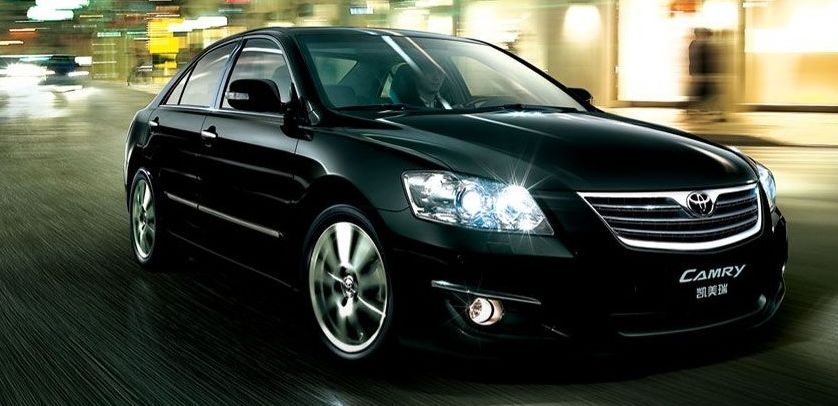
Japanese brands targetting 4 million sales in China in 2014
“Japanese Economic News” and other media that Toyota, Nissan, Honda, Suzuki, Mazda and Mitsubishi and other six companies in China this year, total sales will hit 4 million mark.
According to Gasgoo finishing car prices, official data, these six companies in China last year, sales were 918,000, 1,266,000, 757,000, 230,000, 187,000 and 67,000, a total of 3.43 million, which means the whole year of Japanese cars in China will be increased by approximately 16%.
According to the Automobile Association predicts that by 2014 China auto sales will reach 24 million, compared to 2013’s 2,198 ten thousand enhance nearly 10%, accounting for a quarter of the global car market share. In other words, Japanese cars increased to approximately 16.7% of the overall market share in China, the ratio is about 15.6% from last year’s.
《日本经济新闻》等媒体表示,丰田、日产、本田、铃木、马自达和三菱等六家公司今年在华总销量将冲击400万辆大关。
根据盖世汽车网整理车企官方数据,这六家企业去年在华销量分别为91.8万辆、126.6万、75.7万辆、23.0万辆、18.7万辆和6.7万辆,总计343万辆,这意味着今年日系车在华整体将同比增长约16%。
按照中汽协预测,2014年中国车市销量将达2,400万辆,较2013年的2,198万辆提升近10%,占据全球汽车市场四分之一份额。也就是说,日系车在华所占整体市场比例将从去年的15.6%左右提高到约16.7%.
SHANGHAI—Japanese auto makers are becoming increasingly bullish about their prospects in China amid strong sales gains—even as some analysts point to possible challenges ahead.
Toyota Motor Corp. 7203.TO -1.22% , the world’s largest car maker by sales, said on Monday it expects to sell more than 1.1 million vehicles in China this year, up about 20% from 917,500 vehicles in 2013.
Enlarge Image
Honda Motor Co. 7267.TO -0.13% said the company aims to sell more than 900,000 vehicles in China in 2014. Last year it sold 756,882 vehicles, up 26% from 2012. “What is important for us is to provide products that Chinese customers want to have,” said Honda China spokeswoman Natsuno Asanuma.
Nissan Motor Co. 7201.TO -0.33% , the best-selling Japanese car brand in China, is expected to release its results on Tuesday. The company foresees “pretty good” sales figures for the year, said an executive familiar with the results. Nissan’s sales in China totaled 1.13 million vehicles in the first 11 months of 2013, up 13% from a year earlier.
Heightened competition from domestic and international brands and the recent escalation of political tensions suggest Japanese car makers aren’t out of the woods yet.
On Monday, relative China newcomer Ford Motor Co. F +0.79% said its China sales surged 49% last year to 935,813 vehicles, leapfrogging Toyota.
Meanwhile, Japanese Prime Minister Shinzo Abe’s December visit to the controversial Yasukuni Shrine to Japan’s war dead has triggered fresh antipathy between the two Asian rivals.
Tensions last peaked in September 2012, when the Japanese government took steps to privatize a small group of islets—known as the Diaoyu in China and Senkaku in Japan—in the East China Sea, resulting in anti-Japanese street protests in China and a handful of attacks on Japanese-brand cars and their drivers. Before the islands spat, Japanese brands held about a 20% market share. By the end of 2012, this had plummeted to 14.9%. The Japanese slowly crawled back to a market share of 15.7% by November.
Representatives for Toyota and Honda, as well as the Nissan executives, said they haven’t seen a significant impact after the shrine visit.
Lin Huaibin, an analyst at consulting firm IHS in Shanghai, said that while Toyota is doing well with its budget-car strategy in China, he still considered Toyota’s 2014 target to be “too ambitious,” citing political tensions. IHS estimates that Toyota’s China sales will likely reach 980,000 vehicles this year and puts Honda’s 2014 sales at 820,000 vehicles.
John Zeng, a managing director at consulting firm LMC Automotive, said he didn’t expect a “dramatic” sales hit. But he said the Japanese risked losing market share in China to other brands—domestic and international—as competition continued to surge.
To bolster share, more brands are focusing on sales in the interior of China where fast-growing cities offer the potential for millions of new consumers—areas where anti-Japanese sentiment often holds great sway.
Mr. Zeng said any political tension could lead to an “awkward” media environment that could make it difficult for Japanese brands to hold marketing events or advertise. “Japanese-brand cars are an easy target,” he said. “They are considered a symbol of Japan.”
Japanese car makers’ strong performance in 2013 came on the back of popular new products. Honda has scored with its China-developed Crider sedan, which went on sale in June with a sticker price of 114,800 yuan, or about $19,000. Toyota redesigned its Yaris and Vios models for the Chinese market, making these vehicles longer. Other recent Toyota launches include new RAV4, Crown and Reiz models.
Toyota is planning to launch some models with three rows of seats in a bid to lure families that intend to have two children. Honda plans to introduce nine all-new or upgraded models in the coming two years, the company said toward the end of last year.
Toyota also opened a research center in China in November to make batteries for hybrid cars to meet growing demand for eco-friendly vehicles in the country. “We are aiming to launch locally produced hybrids around 2015. The center will bring down costs for Chinese consumers,” said Xu Yiming, a spokesman for Toyota China.
—Rose Yu and Colum Murphy

Leave a Reply